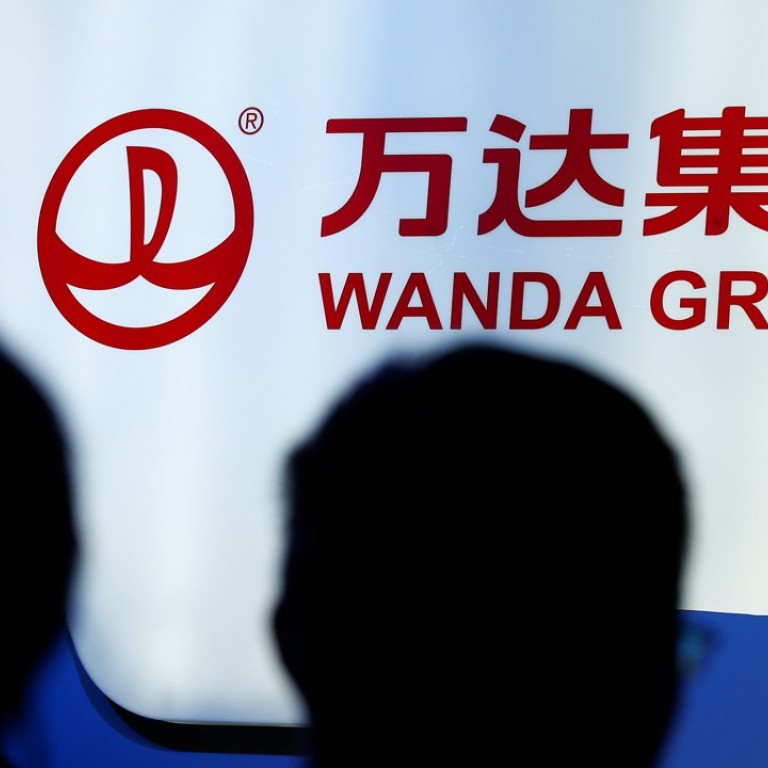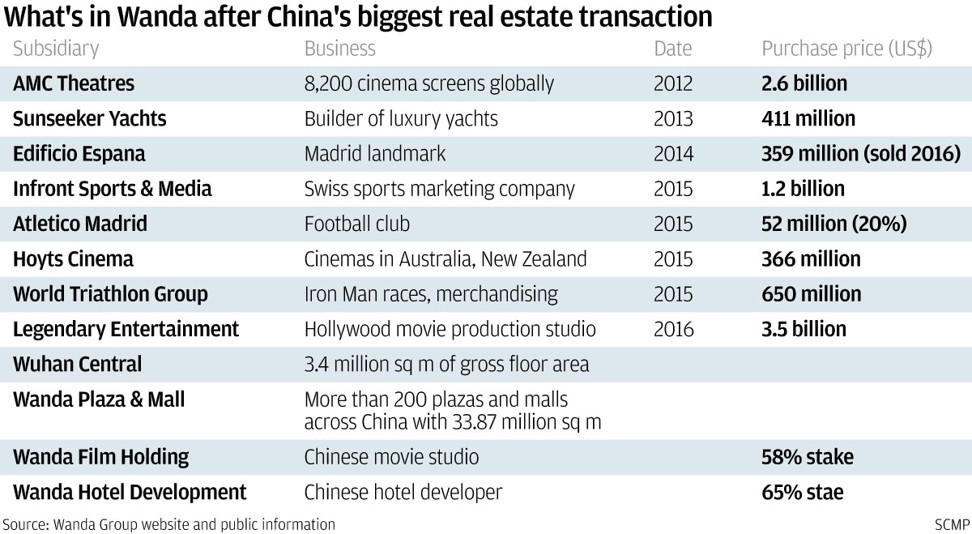
Has Wanda made a Legendary mistake with its acquisition of the Hollywood studio? Only time will tell
The Chinese conglomerate has a seemingly uphill task of integrating the US$3.5 billion purchase of Legendary Entertainment with its portfolio of shopping malls and cinemas as it undergoes restructuring
In Hollywood’s and China’s reluctant on and off again relationship, the predominant problem is determining the substance of the relationship. What are Chinese firms actually buying and how is it actually valued?
Perhaps the source of reluctance for Beijing regulators occurred when they read the notorious account of Sony’s troubled 1989 acquisition of Columbia – Hit and Run: How Jon Peters and Peter Guber Took Sony for a Ride in Hollywood, by Nancy Griffin and Kim Masters. Guber presciently distilled “the perception of power” in Hollywood, where the only underlying purpose is extracting money. Everyone except Sony made money along the way.

The first transaction was Sony’s US$4.7 billion acquisition of Columbia Pictures Entertainment, which included TriStar. Then, the US$200 million buyout of Guber-Peters Entertainment to hire the two partners. Finally, Sony spent more than a billion dollars to buy out Guber’s and Peters’ deals with Warner so they could run Sony. Within five years Sony declared a loss of an additional US$3.2 billion.
Defining and understanding financial value of what comprises a Hollywood studio is as difficult as making a successful film. Yet, with so many types of mainland enterprises from mining, internet to real estate, trying to buy their way into Hollywood, their stockholders and government overseers should be wondering what they are really buying when they say they are acquiring a studio.
The lines among a film financing vehicle, a creator of intellectual property or a film distributor are distinct.
Beijing’s sharp pullback on debt-financed overseas deal making in 2017 may have been a reaction to overgeared and opportunistic expansion. But, Hollywood’s history certainly lives up to its reputation for the ability to lose big money and as the ultimate machine for money laundering and accounting legerdemain. It’s just so easy to manipulate transfer pricing for so many services in front of and behind the cameras and then carve off fees. And the cost of making today’s blockbuster films only heightens that risk.
When Legendary Entertainment’s founder Thomas Tull sold his studio to China’s Wanda Group for US$3.5 billion in 2016, it was a film financing vehicle transforming into an independent global producer and aspiring owner of “tent pole” film franchises. No valuation multiples were available for Wanda’s deal.
Defining and understanding financial value of what comprises a Hollywood studio is as difficult as making a successful film
But a private placement document in 2013 valued Legendary at eight times 2013 EV/EBITD implying a valuation of about $2.8 billion. It compared that to Disney’s purchase of Lucasfilm in 2012 for 10 times; Pixar in 2006 for 32 times; and Marvel in 2009 for 8.5 to 10 times.
The difference in the higher multiples resides in ownership of a studio’s library of intellectual property that are supposed to generate more free cash flow than other areas of entertainment.
Legendary and Wanda describe all the wonderful businesses and franchises they will create, but those are future unknowns yet to be monetised. For example, they really don’t own the Batman and Superman properties, which are controlled by Warner Brothers and Universal Pictures, respectively. So their financial ownership is really a series of licensing, revenue sharing cash flows, but little actual ownership of intellectual property.
Just slate financing for a series of films – funding high risk projects alongside studios is nothing new in Hollywood. Private bankers can access such deals for clients wanting exposure. But, Tull, formerly a private equity investor and manager, handled them as Wall Street deals rather than Hollywood investments. In a Wall Street Journal interview he said, “We treat each film like a start-up.” Each film can independently win or lose big.
Tull emerged at a time when the budgets of blockbuster, CGI driven films began to exceed US$200 million. Major studios needed to reduce their risk exposure. Legendary and Tull succeeded in organising some of the largest banks, private equity and venture capital funds. Employing financial risk management was the only way to satisfy the risk-return approach of today’s large financial investors.

So it was no surprise that in June 2005, Warner Brothers announced a US$500 million, 25 picture financing deal with Legendary, which included Bank of America and AIG. Early films included Batman Begins (2005) and Superman Returns (2006).
Wanda initially bought a film financing company. And now Legendary’s next big risk, without its founder, is jumping from a financier to an independent studio – if you define that as a developer and owner of intellectual property. Legendary started in 2005 and eventually found success in investing in Warner Brothers’ The Dark Knight and the smaller budget Hangover films. But, in 2013, it reformed as an independent studio based at Universal. Then, it produced box office flops Blackhat and The Great Wall.
Legendary has no choice but to pursue content ownership and development of blockbuster entertainment properties. Wanda’s ambitions go beyond slate film financing. How Legendary achieves success in Wanda’s broader portfolio of physical infrastructure of shopping malls and cinemas as it is being significantly restructured remains the elusive challenge to fulfilling its valuation.
Peter Guy is a financial writer and a former international banker


